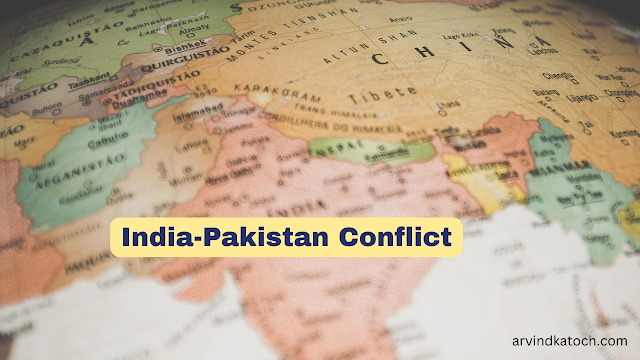The conflict between India and Pakistan has been one of the most persistent and complex geopolitical struggles in South Asia, shaping the region’s history since 1947. While the recent escalation nearly led to war, the ceasefire on May 10, 2025, has temporarily restored fragile peace.
The Latest Escalation:
The recent events stemmed from the April 22 Pahalgam terror attack, where 26 Indian tourists were killed by Pakistan-backed terrorists. This led India to launch Operation Sindoor on May 7, 2025, targeting nine terror camps deep inside Pakistan and Pakistan-occupied Kashmir (PoK). Pakistan retaliated with drone and missile strikes, intensifying tensions. Despite diplomatic efforts, Pakistan violated the ceasefire within hours, triggering counterstrikes from India.
The Jammu & Kashmir Dispute:
The core issue between the two nations remains Jammu and Kashmir, a region both claim in full. The conflict dates back to the Partition of India in 1947, when Pakistan attempted an invasion, forcing the Maharaja of Kashmir to accede to India. The first war (1947-48) resulted in Pakistan controlling a portion of Kashmir, later termed Pakistan-occupied Kashmir (PoK). Since then, three more wars (1965, 1971, 1999 Kargil War) have been fought between the two nations, with Pakistan continuously attempting to destabilize Kashmir through terror activities and armed insurgencies.
India's Revocation of Article 370:
In August 2019, India revoked Article 370, which granted special status to Jammu and Kashmir. This move reorganized the region into two union territories: Jammu & Kashmir and Ladakh, integrating it fully into India’s administrative framework. Pakistan viewed this as a direct challenge to its claims and increased support for militant groups operating in Kashmir.
Future Outlook:
While both India and Pakistan have agreed to the 2025 ceasefire, history suggests that peace remains fragile. Diplomatic intervention, particularly from global powers like the United States and Russia, may play a key role in maintaining stability. However, India has emphasized that any further aggression will be met with strong retaliation.
The resolution of this conflict depends on wisdom, diplomacy, and mutual concessions. But given historical patterns, will lasting peace ever be possible?
